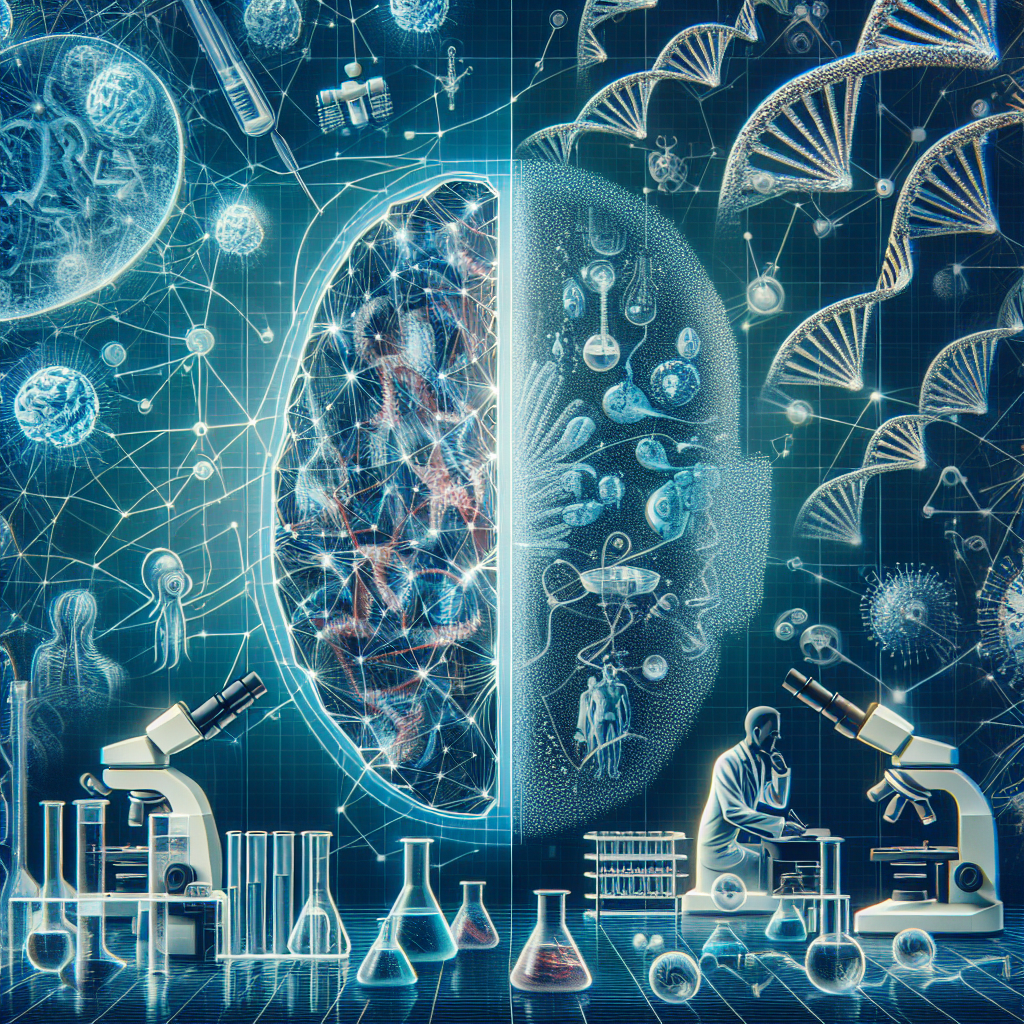Artificial Intelligence (AI) has made significant advancements in various fields, including medical research. With the ability to analyze large amounts of data quickly and accurately, AI has the potential to revolutionize the way diseases are diagnosed, treated, and prevented. In this article, we will explore the role of AI in medical research, its benefits, challenges, and future prospects.
AI in Medical Research
AI has the potential to transform medical research by enabling researchers to analyze vast amounts of data in a fraction of the time it would take using traditional methods. AI algorithms can sift through millions of medical records, genetic data, and other sources of information to identify patterns and trends that could lead to new insights and discoveries.
One of the key areas where AI is making a significant impact is in the field of genomics. AI algorithms can analyze genetic data to identify genetic mutations that are associated with specific diseases, helping researchers better understand the underlying causes of diseases and develop targeted treatments.
AI is also being used to develop new drugs and treatments more quickly and efficiently. By analyzing large amounts of data on drug interactions, side effects, and patient outcomes, AI algorithms can help researchers identify promising drug candidates and predict how they will perform in clinical trials.
Another area where AI is being used in medical research is in the development of personalized medicine. By analyzing an individual’s genetic data, medical history, and other relevant information, AI algorithms can help doctors tailor treatments to the specific needs of each patient, leading to better outcomes and fewer side effects.
Benefits of AI in Medical Research
There are several benefits of using AI in medical research, including:
1. Faster and more accurate data analysis: AI algorithms can analyze large amounts of data quickly and accurately, leading to new insights and discoveries that would be impossible using traditional methods.
2. Personalized medicine: AI algorithms can help doctors tailor treatments to the specific needs of each patient, leading to better outcomes and fewer side effects.
3. Drug discovery: AI algorithms can help researchers identify promising drug candidates more quickly and efficiently, leading to the development of new treatments for diseases.
4. Predictive analytics: AI algorithms can predict patient outcomes, identify high-risk patients, and recommend personalized treatment plans.
Challenges of AI in Medical Research
While AI has the potential to revolutionize medical research, there are also several challenges that need to be addressed:
1. Data privacy and security: AI algorithms require access to large amounts of data, raising concerns about patient privacy and data security.
2. Bias in algorithms: AI algorithms can be biased if they are trained on data that is not representative of the population, leading to inaccurate results and potential harm to patients.
3. Lack of transparency: Some AI algorithms are black boxes, meaning that it is not always clear how they arrive at their conclusions, making it difficult for researchers to understand and trust the results.
4. Regulatory hurdles: AI technologies are subject to regulatory oversight, which can slow down the development and adoption of new treatments and technologies.
Future Prospects of AI in Medical Research
Despite these challenges, the future prospects of AI in medical research are promising. As AI technologies continue to evolve and improve, researchers will be able to harness the power of AI to accelerate the pace of medical research and develop new treatments for diseases.
One exciting area of research is the use of AI in drug discovery. By analyzing large amounts of data on drug interactions, side effects, and patient outcomes, AI algorithms can help researchers identify promising drug candidates more quickly and efficiently, leading to the development of new treatments for diseases.
AI is also being used to develop new diagnostic tools and imaging techniques that can help doctors detect diseases earlier and more accurately. For example, AI algorithms can analyze medical images to identify patterns and trends that could indicate the presence of cancer or other diseases, leading to earlier diagnosis and treatment.
Another area of research is the use of AI in predictive analytics. By analyzing large amounts of data on patient outcomes, AI algorithms can predict which patients are at high risk of developing certain diseases, allowing doctors to intervene early and prevent the progression of the disease.
Overall, the future of AI in medical research is bright, with the potential to revolutionize the way diseases are diagnosed, treated, and prevented.
FAQs
Q: How is AI being used in medical research?
A: AI is being used in medical research to analyze large amounts of data, develop new drugs and treatments, develop personalized medicine, and predict patient outcomes.
Q: What are the benefits of using AI in medical research?
A: The benefits of using AI in medical research include faster and more accurate data analysis, personalized medicine, drug discovery, and predictive analytics.
Q: What are the challenges of using AI in medical research?
A: The challenges of using AI in medical research include data privacy and security, bias in algorithms, lack of transparency, and regulatory hurdles.
Q: What are the future prospects of AI in medical research?
A: The future prospects of AI in medical research are promising, with the potential to revolutionize the way diseases are diagnosed, treated, and prevented.

